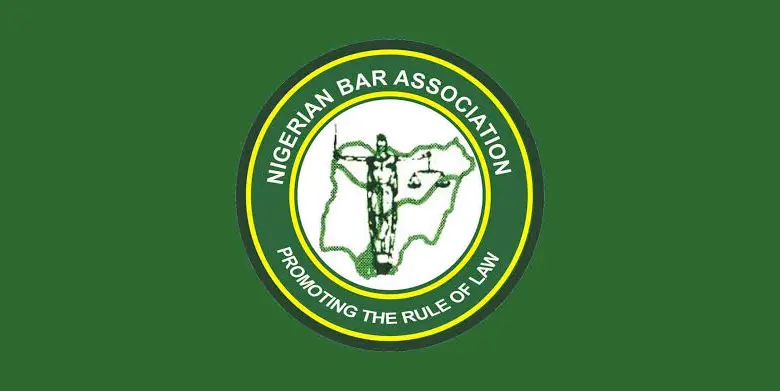The Nigerian Bar Association (NBA) has strongly criticized President Bola Ahmed Tinubu’s declaration of a state of emergency in Rivers State, describing it as unconstitutional and a dangerous precedent for Nigeria’s democracy.
In a press statement released on March 18, 2025 and signed by its president Mazi Afam Osigwe, SAN, the NBA expressed grave concerns over the President’s decision to suspend the Governor of Rivers State, Siminalayi Fubara, his deputy, and members of the State House of Assembly, warning that such actions undermine the rule of law and the federal structure of the country.
President Tinubu, in his address to the nation, cited “vandalization of pipelines between yesterday and today” and the prevailing political tension in Rivers State as reasons for the declaration. However, the NBA has questioned the legality of the move, emphasizing that the 1999 Constitution of Nigeria (as amended) does not grant the President the power to remove elected officials under the guise of a state of emergency.
The NBA highlighted Section 305 of the Constitution, which governs the declaration of a state of emergency, noting that it imposes strict conditions and procedural safeguards to prevent abuse of power. According to the NBA, the suspension of Governor Fubara, his deputy, and members of the Rivers State House of Assembly violates constitutional provisions, particularly Section 188, which outlines the legal process for removing a governor or deputy governor.
“A declaration of emergency does not automatically dissolve or suspend elected state governments,” the NBA stated. “The Constitution does not empower the President to unilaterally remove or replace elected officials—such actions amount to an unconstitutional usurpation of power and a fundamental breach of Nigeria’s federal structure.”
The association further argued that the political crisis in Rivers State does not meet the constitutional threshold for declaring a state of emergency. Section 305(3) specifies conditions such as war, external aggression, a breakdown of public order, or a natural disaster. The NBA questioned whether the current situation in Rivers State, which it described as a political disagreement, justifies such extreme measures.
Related Article: President Tinubu declares state of emergency in Rivers, Suspends Governor Fubara, House of Assembly
The NBA also drew attention to Section 305(2), which requires the National Assembly to approve a state of emergency proclamation within two days if in session or within ten days after reconvening. The association emphasized that without legislative ratification, the declaration remains constitutionally invalid.
“The NBA calls on the National Assembly to reject any unconstitutional attempt to ratify the removal of the Rivers State Governor and other elected officials,” the statement read. “The approval of a state of emergency must be based on strict constitutional grounds, not political expediency.”
The NBA warned that the suspension of elected officials under emergency rule sets a dangerous precedent that could be exploited to unseat governments in the future. “Such actions undermine democracy and could be misused to destabilize elected governments,” the association stated.
The NBA urged all stakeholders, including the judiciary, civil society, and the international community, to closely monitor the situation in Rivers State to prevent further unconstitutional actions. It also called on relevant authorities to act in the best interest of the country and uphold the Constitution as the supreme legal authority.
In conclusion, the NBA reaffirmed its commitment to defending democratic governance and ensuring the rule of law prevails in Nigeria. “A state of emergency is an extraordinary measure that must be invoked strictly within constitutional limits,” the statement read. “The removal of elected officials under the pretext of emergency rule is unconstitutional and unacceptable.”
The NBA’s strong stance has sparked widespread reactions across Nigeria, with many citizens and civil society groups echoing the call for constitutional compliance. As the situation unfolds, the focus remains on the National Assembly’s response and whether President Tinubu’s administration will reconsider its actions in light of the constitutional concerns raised.






